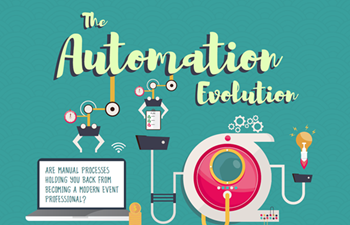Creating events that feel personal to delegates are vital in the industry today. With Millennials flooding the workplace and changing the way events are experienced, many event managers are working diligently to design events that will appeal to this newer demographic. One of the main things that delegates look for in events is, of course, personalization. From thoughtful, personalized gifts for each delegate to tailored catering, event managers are transforming what personalization looks like in the industry.
Today’s delegates are after an experience when they attend an event, and while most event managers are well versed in the ways of creating a personalized event, this can still be a challenge for large-scale events.
There are plenty of ways event managers can plan large-scale events like conferences or conventions, weaving in touches of personalization so that delegates don’t feel isolated amongst 500,000 square feet of supplier booths and a sea of other attendees.
1. Collect as much data as you can
Information is an event manager’s best friend. Throughout the event planning stages, there is a great deal of data available to organizers about who will be attending. Information like job titles, industries and interests gained from the registration process can be used to ensure that everyone attending your large-scale event is catered for. The more you personalize the registration process, the more information you have available to then personalize the event itself.
Every bit of information can be useful and allow you to create the event around your delegates. Don’t overlook information that can contribute to providing the right dietary options, relevant speakers and topics, all the way down to what types of products or services attendees might want to learn about.
2. Get to know your delegates
A vital step in the process of planning a large scale event is for organizers to put their feet in their delegate’s shoes. Once you’ve harvested the data about your attendees, it’s time to research how to translate this into an event they’ll love. Your data should give you a strong understanding of who will be attending your event, and therefore what they will be looking for.
One great way to better understand your delegates’ wants and needs is to create a persona. Personas can represent the different types of people who will be at the event. Sometimes putting a name and face to your delegates can allow you to really get in their head and understand what they will want to get out of the event.
You can create several different personas to match the different sets of people that will be attending the event to make sure that everyone is catered to. Personas can focus on people in different job titles, seniority levels, types of companies, and so on. You can make them as specific or general as you need to, though how specific you can make them will depend on the data available to you.
3. Create targeted agendas
Once you’ve got a firm understanding of the attendees and have managed to create several personas to represent them, you can start creating agendas. Collating the most interesting talks, presentations, lectures, demonstrations, networking circles or products that will appeal to the different personas attending the event is one of the best ways to personalize a large scale function.
If you have, for example, five different personas, and each of those personas has their own agenda comprised of a combination event features you think they’ll enjoy the most, your attendees will feel that their individual needs are being met.
4. Use the technology you have available
Event technology just keeps getting more and more impressive. Event managers have the freedom to keep events simple, but there are endless opportunities to wow delegates with technology integrated into the event. Technology also has the added benefit of enabling many aspects of an event run more smoothly, such as checking in, finding where the next talk or presentation will be, and so on.
Many large-scale events are developing their own apps that include all the event information in one place, like schedules, details of networking meet-ups, speaker profiles and much more. Technology like this allows conference organizers another opportunity to personalize the event further.
Access the latest business knowledge in Marketing
Get Access





Comments
Join the conversation...